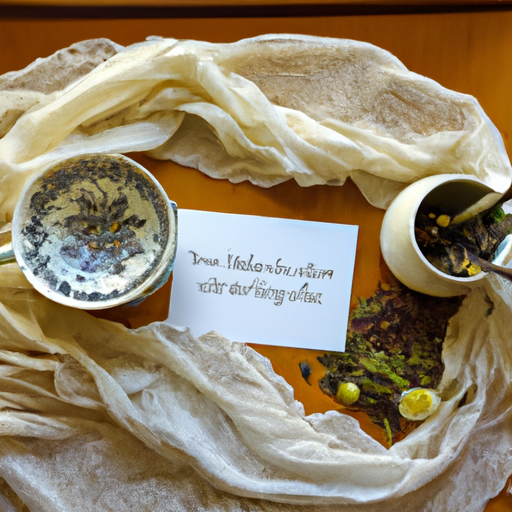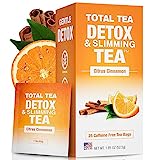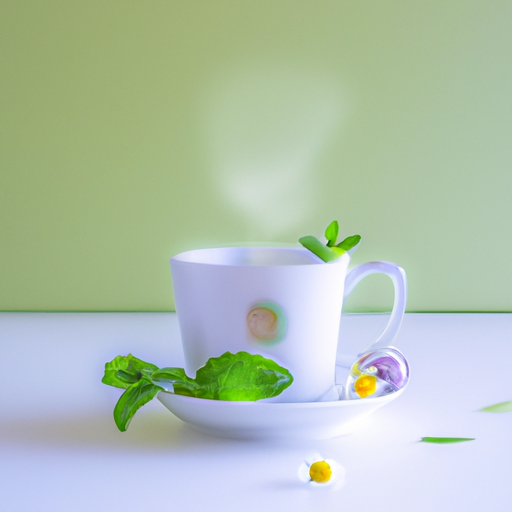Did you know that herbal tea has been utilized for its health benefits for centuries? Herbal tea is widely recognized for its various medicinal properties, including enhancing the immune system, improving digestion, and inducing relaxation.
With so many different herbs to choose from, each with its own unique properties, preparing herbal tea can be a fun and rewarding experience. In this article, I will guide you through the process of preparing herbal tea step by step, ensuring that you get the most out of your brew.
From choosing the right herbs for your needs to measuring and preparing them, I will provide you with all the necessary information and tools to make a perfect cup of herbal tea.
So grab your favorite mug, gather your herbs, and let’s get started on this delightful journey of preparing herbal tea.
Key Takeaways
- Choosing the right herbs is important for your needs
- Steeping herbal tea is essential to unlock its full potential
- Water temperature is crucial for a perfect brew
- Straining herbal tea properly ensures a smooth drinking experience
Understand the Benefits of Herbal Tea
Discover the incredible benefits of herbal tea and let it soothe your mind and invigorate your body.
Herbal tea has been used for centuries due to its medicinal properties and its ability to promote overall well-being. The brewing techniques for herbal tea are simple and can be easily incorporated into your daily routine.
The process involves steeping the herbs in hot water for a few minutes to release their natural flavors and nutrients. The temperature and steeping time may vary depending on the type of herb you’re using.
Some popular herbs for herbal tea include chamomile, peppermint, and ginger. These herbs have been known to aid digestion, reduce inflammation, and promote relaxation.
Now that you understand the benefits of herbal tea, let’s explore how to choose the right herbs for your needs.
Choose the Right Herbs for Your Needs
Find the perfect blend of herbs that suits your needs and brew yourself a cup of pure relaxation. Different types of herbal teas offer unique benefits for relaxation and stress relief. Here are some options to consider:
-
Chamomile: Known for its calming properties, chamomile tea can help reduce anxiety and promote better sleep.
-
Lavender: The soothing scent and taste of lavender tea can help relieve stress and promote relaxation.
-
Lemon balm: This herb has been used for centuries as a natural remedy for anxiety and stress.
-
Peppermint: Known for its refreshing flavor, peppermint tea can help relax the muscles and ease tension.
-
Valerian root: This herb is commonly used to promote relaxation and improve sleep quality.
By incorporating these herbs into your tea routine, you can experience the benefits of herbal tea for relaxation and stress relief. Now, let’s gather your ingredients and tools to start brewing your own herbal tea concoction.
Gather Your Ingredients and Tools
Now it’s time to round up all the necessary ingredients and tools for creating your very own aromatic blend of relaxation in a cup.
When it comes to brewing herbal tea, there are different methods you can try. Some popular options include steeping the herbs in hot water, using a tea infuser, or brewing the tea in a pot on the stove. Choose the method that suits your preference and equipment availability.
It’s also important to properly store and preserve your herbal tea ingredients. Keep them in airtight containers away from direct sunlight and moisture to maintain their freshness and potency. By taking these steps, you can ensure that your herbs stay flavorful and effective for a longer period of time.
With all your ingredients and tools gathered, let’s move on to the next section about measuring and preparing the herbs.
Measure and Prepare the Herbs
Are you ready to create a delicious and soothing blend of herbs for your perfect cup of relaxation? Understanding herbal properties is key when preparing herbal tea for relaxation.
Different herbs have different effects on the body, so it’s important to choose the right ones for your desired outcome. For a calming and soothing tea, try chamomile, lavender, or lemon balm. If you’re looking for a tea to help with digestion or to boost your immune system, consider peppermint, ginger, or echinacea.
Measure out the herbs according to your taste preferences and the recommended ratios. You can use a teaspoon or tablespoon to measure, depending on the quantity you want to make.
Once you have measured and prepared the herbs, you’re ready to steep your herbal tea and enjoy its comforting benefits.
Steep Your Herbal Tea
Get ready to infuse your chosen blend of herbs in hot water to create a soothing and flavorful cup of relaxation. Steeping your herbal tea is an essential step in unlocking its full potential.
There are different steeping methods you can use, depending on the type of herbs you’re using and the desired strength of your tea. For delicate herbs, such as chamomile or mint, a shorter steeping time of around 5 minutes is sufficient to extract their flavors. Stronger herbs, like lavender or rosemary, may require a longer steeping time of 10-15 minutes to fully release their aromatic compounds.
Additionally, the water temperature is crucial for a perfect brew. Most herbal teas require boiling water, but some delicate herbs may be better steeped with water that’s slightly below boiling.
Once your tea has steeped to your liking, it’s time to strain and serve, allowing you to enjoy the full benefits of your herbal tea blend.
Strain and Serve
Once your infusion’s reached its desired strength, it’s time to gently strain and elegantly serve your meticulously crafted blend.
Straining the tea properly is essential to ensure a smooth and enjoyable drinking experience. Start by using a fine-mesh strainer or a tea infuser to remove any loose herbs or particles from the liquid. Pour the tea slowly through the strainer into your teacup, allowing the liquid to flow through while trapping the solids. This process will help you achieve a clear and sediment-free cup of herbal tea.
Now that your tea’s strained, it’s time to serve it. Consider using a beautiful teapot or a delicate teacup to enhance the aesthetic appeal. Serve the tea hot or chilled, depending on your preference, and enjoy the soothing flavors and aromas.
As you explore different herbal tea blends and variations, you’ll discover an endless world of delightful options to suit your taste buds without missing a beat.
Explore Different Herbal Tea Blends and Variations
Discover the endless array of delightful options to suit your taste buds by exploring different blends and variations of herbal tea. Whether you prefer a soothing chamomile blend or a refreshing mint infusion, there are countless flavors to choose from.
Flavor profiles: Discover unique combinations of herbs for a flavorful herbal tea experience. Mix lavender and lemon balm for a calming and citrusy blend, or try ginger and turmeric for a spicy and warming cup of tea. The possibilities are endless, allowing you to customize your tea to your liking.
Health benefits: Explore the medicinal properties of different herbal tea blends. For example, peppermint tea can aid digestion and relieve headaches, while rosehip tea is rich in vitamin C and can boost your immune system. By experimenting with various blends, you can not only enjoy the taste but also reap the health benefits of herbal tea.
Frequently Asked Questions
Can I use fresh herbs instead of dried herbs to make herbal tea?
Using fresh herbs for herbal tea brings a burst of flavor and vitality to your brew. Not only do they add a vibrant aroma, but they also retain more essential oils and nutrients, enhancing the health benefits of your tea.
Can I mix different types of herbs together to make my own herbal tea blend?
Yes, you can mix different types of herbs together to create unique herbal tea blends. Combining different herbs in tea can enhance the flavor, aroma, and health benefits of the tea, providing a diverse range of nutrients and healing properties.
How long can I store the prepared herbal tea before it goes bad?
The prepared herbal tea can be stored for up to 1 week in the refrigerator before it starts to lose its flavor and potency. Storing herbal tea properly ensures that you can continue to enjoy its numerous health benefits.
Can I add sweeteners like honey or sugar to my herbal tea?
Yes, you can add sweeteners like honey or sugar to your herbal tea. However, it’s important to note that some herbal teas have natural sweetness and adding sweeteners may not be necessary. Additionally, it’s best to limit the amount of sweeteners for optimal health benefits.
Is it safe to consume herbal tea during pregnancy or while breastfeeding?
"Better safe than sorry." It is generally safe to consume herbal tea during pregnancy or while breastfeeding, but safety concerns and potential benefits should be discussed with a healthcare provider.
Conclusion
In conclusion, preparing herbal tea is like orchestrating a symphony of flavors and benefits. It’s a delightful journey that nourishes both the body and soul.
By understanding the numerous benefits of herbal tea and choosing the right herbs for your needs, you embark on a path of wellness. With the right ingredients and tools in hand, you measure and prepare the herbs with precision.
As you steep the tea, the flavors dance and intertwine, creating a harmonious blend. Finally, with a gentle strain and a soothing sip, you indulge in the art of herbal tea.
So go ahead, explore the endless possibilities and let the magic of herbal tea enchant your senses.










